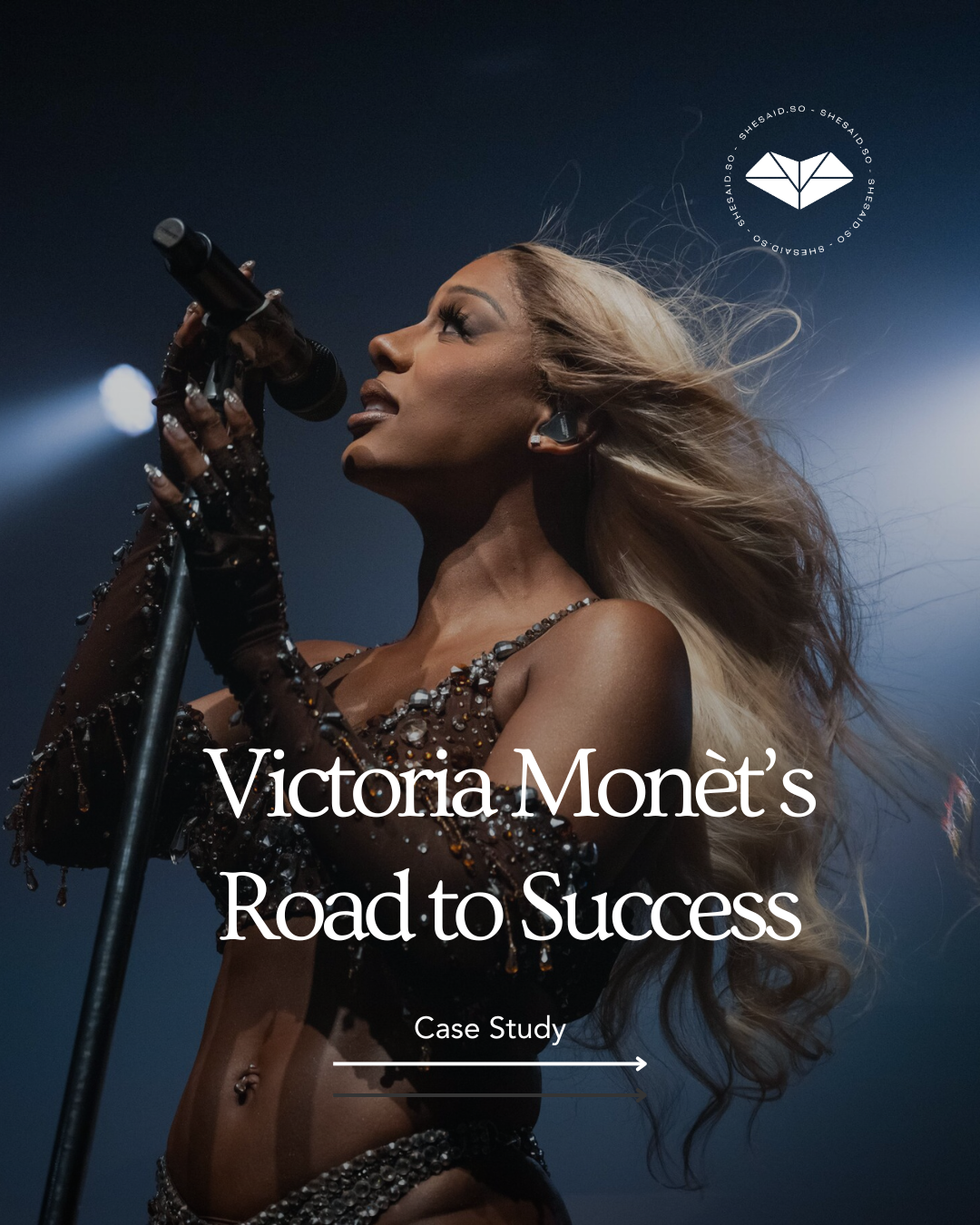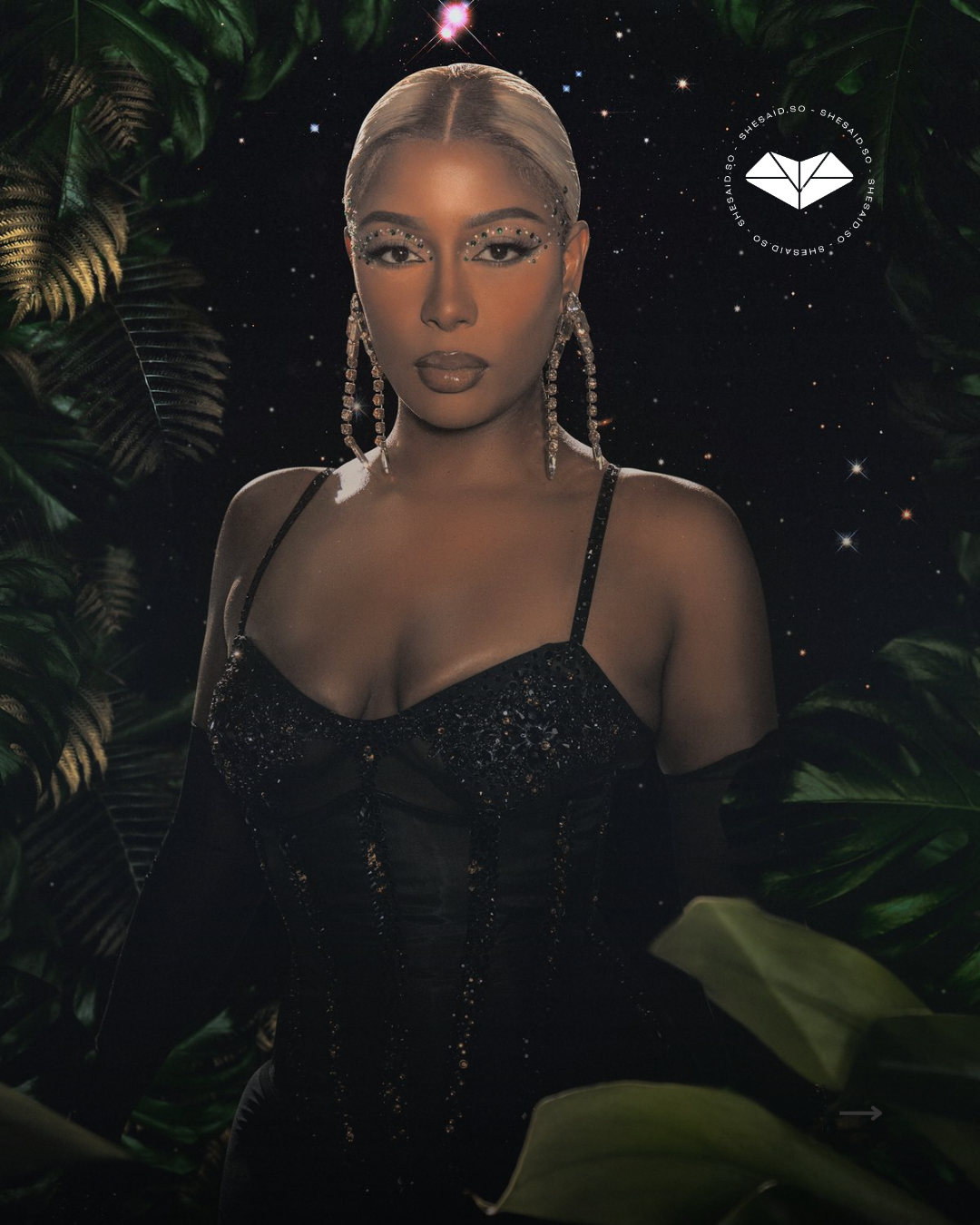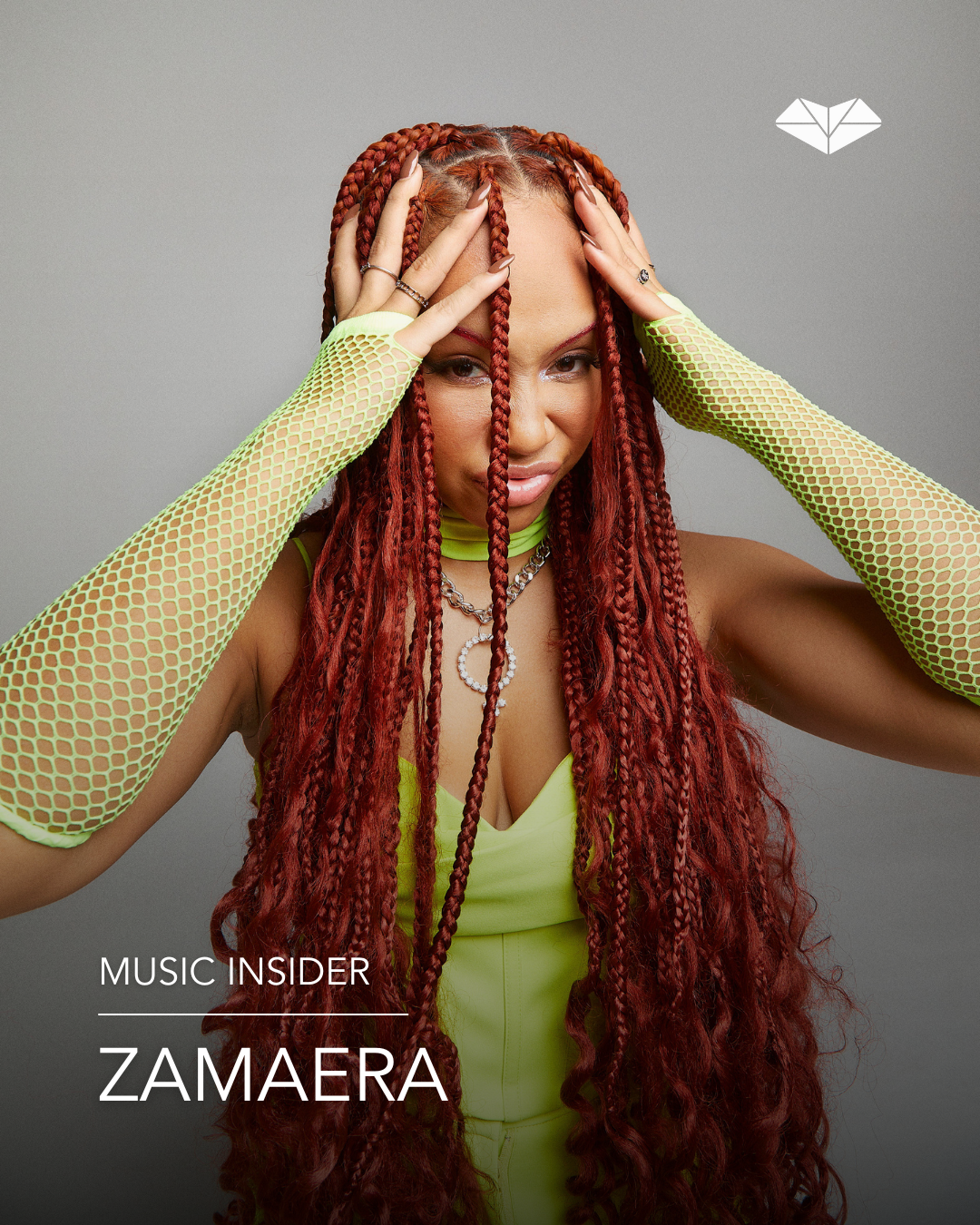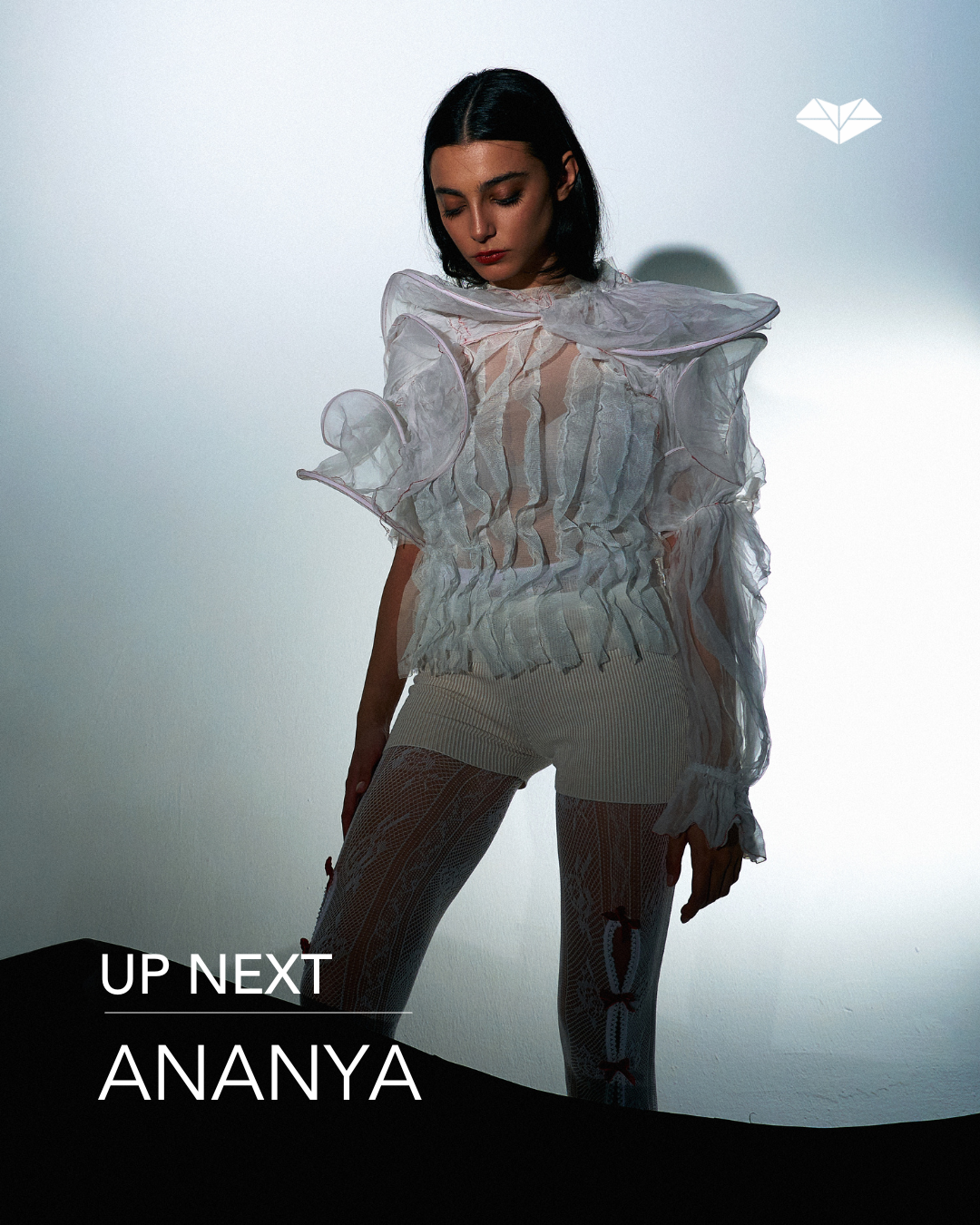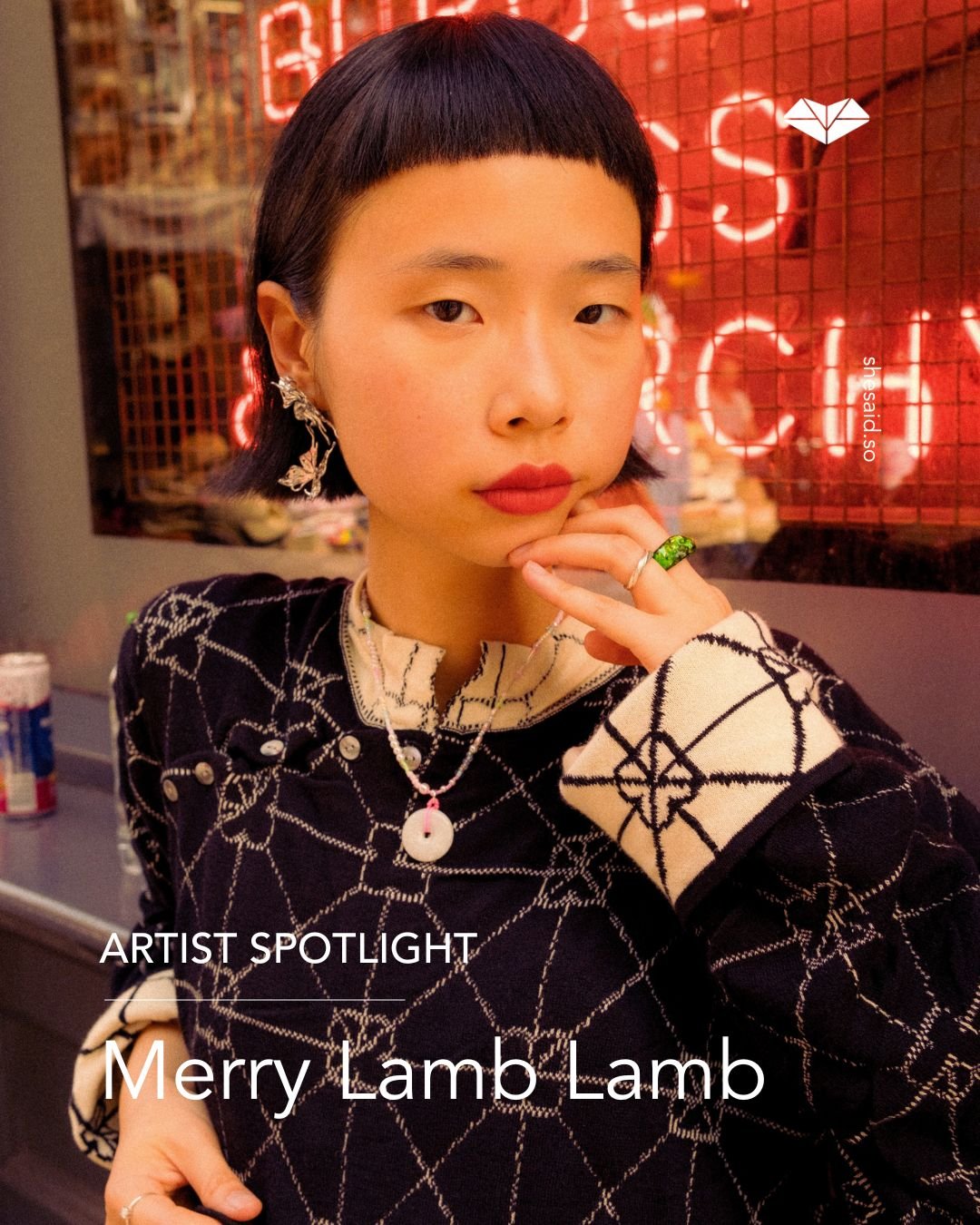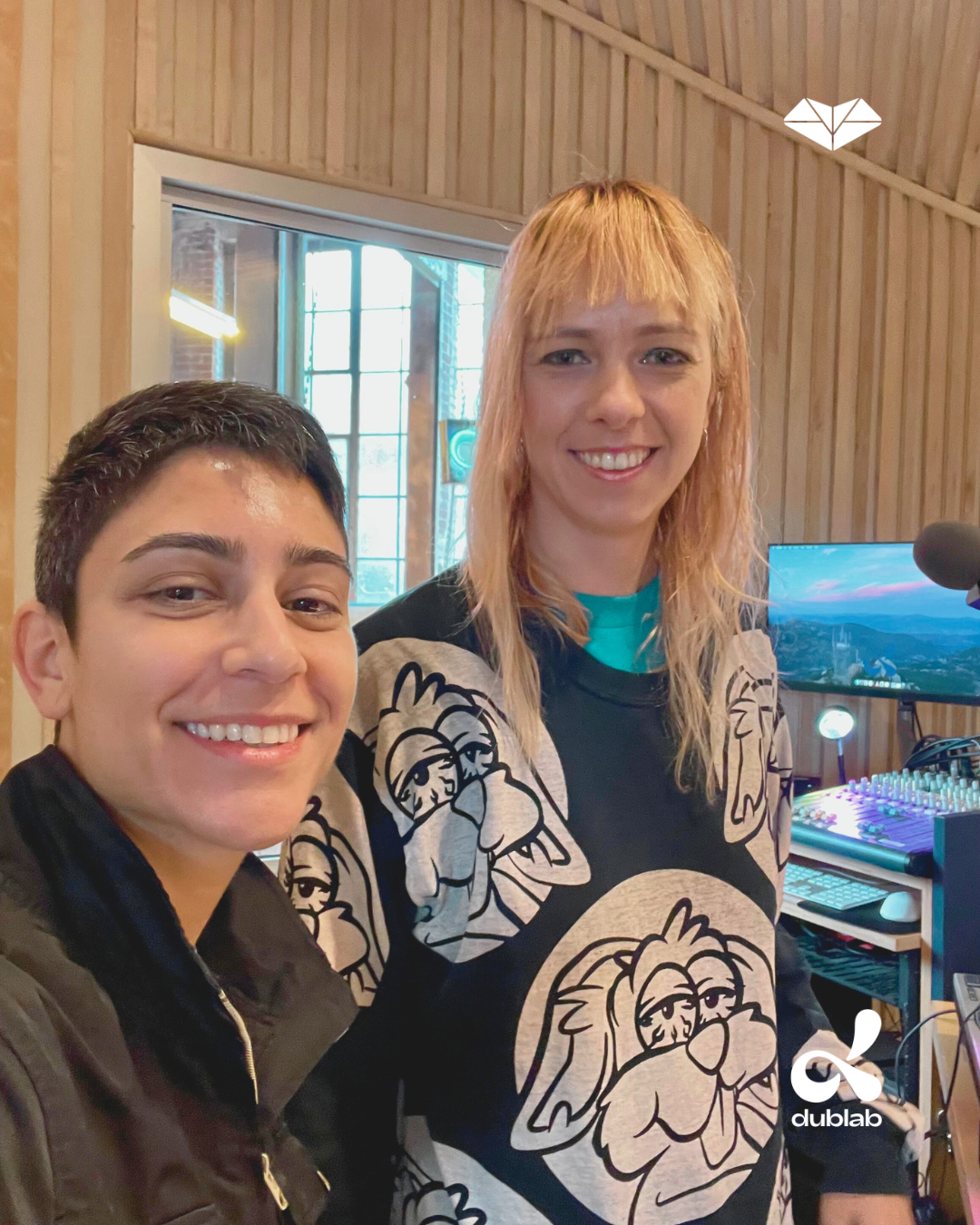Dear community,
As we take a brief moment to celebrate our decade-long anniversary, I feel compelled to deeply reflect on our past achievements and take our time contemplating the future.
Before I dive into explaining this further, I wanted to get a bit personal first. And the reason I’m doing this is because I’ve always been afraid of putting too much of “myself” out here as the face and voice of shesaid.so. Alas, as I dove deeper into coaching over the last couple of years (thank you, my guides!), the more apparent it became that shesaid.so is very much a reflection of my own personality and understanding of the world - until I finally accepted this.
A little about me, then. I was born in the Eastern part of Romania in 1989, 11 months before communism officially ended. My parents were very young when I came about although, at that time, raising a family at a young age was something to be applauded. They didn’t have much and would probably be labeled as low income in most Western countries. My father was a little stern and taught me about the importance of integrity, being on time and, most importantly, working hard. I learned compassion, kindness and treating others how you want to be treated from my mother.
I remember growing up worried about having enough money. For further context, it’s important to note that Romanian history is filled with wars and corruption. As a nation, we are known to be hard workers, plus whatever other stereotypes about Eastern Europeans are out there. Also important to note that we are the only (Ancient) Latin country in Eastern Europe, culture and language are about 70% Romance (same as Italian, French and so on), and only 20% Slavic
My entire childhood I was a good student and graduated high school amongst the high ranks of students in my city. If I wasn’t doing homework, studying for student olympics in physics and literature, I was probably dreaming of becoming a judge or working at NASA. I was a major nerd throughout my life in Romania but really started to dream about boyfriends and other things in high school, like most of us did. Even though I worked hard to prepare for Law school, one month before the big exam I quit everything and eventually ended up studying in the UK.
Westminster University in London accepted my student application as a part of their Bachelors in Media Studies - the type of higher education you sign up for when you don’t really know what you want to do in life. Except I did and then pulled a 360 on it. Why I did that is something I’m still investigating. I’m glad I did because my life took the most unexpected, fun and challenging turns I hadn’t even dreamt to be possible at the time. One of those unimaginable outcomes was landing a job in the music industry.
Before getting my start in music about a year after graduation, I was very much obsessed with Silicon Valley and the concept of startups. I had landed an internship with one of the biggest marketing companies in the UK at the time and pretty much hated it for the three months I worked there. While innovative, my role there felt insular: like I was a cog in the machine that wouldn’t notice if I weren’t there any longer. I would be given a very specific set of information that I had very specific results to draw from. I was hired to scan a blog that was populated by a fictional character; a bot I would program with certain keywords given to me by the market research division in order to impersonate the client’s ideal customer.
I would then spend two thirds of my day scanning through the content pulled by the bot into the blog in order to spot patterns: the type of music and artists this person would be listening to, the type of YouTube videos they would watch and news articles they would read. I would then compile this data and present a set of identifiable patterns to my manager. What happened beyond this stage was never clear to me but I had a sense that it would be a whole lot of journeying in order to translate this information into tangible results. I didn’t like that. I knew that there must be a faster, more efficient, creative and disruptive way to build and ship things. That’s what startups embodied to me and what led me to my first music industry job a year later.
I had become so obsessed with startup culture that I was out of the house pretty much every day of the week, attending all the networking events I could find. One evening at one of these events, I met a couple of startup founders of a streaming platform who ended up offering me a Community Manager position. Worth mentioning that this was in fact my second role as a Community Manager in tech. Not only that, but my dissertation thesis was a study on early online communities. It felt like things were aligning for me in the right direction. I soft launched shesaid.so, my biggest Community endeavor to date, two years into my Mixcloud job, in August 2014.
We've learned and achieved so much over the last nine and a half years together with our shesaid.so members and partners. From countless events and online sessions, through to mentoring programs and editorial content that strived to educate and bring the community closer together. shesaid.so didn’t just bring people together - it forged friendships, enabled business deals, helped entrepreneurs find funding, supported up and coming artists, empowered women mid way through their careers and so much more. Since shesaid.so's launch as a passion project back almost a decade ago, our community has seen and played a part in key moments for the music business and the diversity and inclusion movement - including a pandemic, #metoo, BLM, streaming, the rise (and lows) of the creator economy, web3 and AI to name a few. While some of the wider milestones in our society feel like setbacks, we cannot help but move towards the future with a deep sense of hope.
We are still here and we are standing strong. 15k+ people strong all around the world (actual community members), dispersed across 20 or so local chapters. While we work to put together a report that captures our impact over the past decade, one thing I can say already: we’re tired and excited all at the same time.
As we look towards the future in a sustainable way, we plan to take a long term and deep thinking approach. Since our launch, our goal was two-fold:
Internal: nurture a community that encourages women to help each other out and reject the competitive industry standard - online and offline.
External: create awareness & drive conversation of our mission & goals via the online community and events.
The global shift to the digital space rocked the music business and forced our community to find new ways of connecting and collaborating with one another. In some cases, it was forced to embrace new technologies that are once again reshaping how we produce, distribute and consume online outputs (such as AI and web3). Not only that, but our community has evolved from a group of mostly female music executives to include people of all genders who work in music both in a creative and business capacity; we have been welcoming more and more US-based members while maintaining our presence across Europe; more artists than ever before have been joining us in the past five years; we started expanding our programming beyond the gender conversation and developing our own educational content focused on the music business. We’ve had many highs and many lows and we’ve learned so much from all of it. The most important thing, we’ve stuck together through this all.
New questions around identity, community, economic value, inflation, governance, privacy and ownership have emerged, pushing the music & creative industries to reimagine their place in the world and on the internet. shesaid.so is no stranger to these questions. As a community, it feels that we, and the entire DEI movement, have arrived at a crossroads: on one hand, we have accomplished our mission to drive awareness of diversity and inclusion, and, on the other, it feels as if this newfound social awareness has created more polarization than ever before. If conversation & awareness were our goals thus far, where do we go from here? What is our place in the music business today and moving forward? Who are we and how do we capture this ever evolving communal agency that makes us, authentically us?
These are, truthfully, the questions that often linger on my mind.
Asking ourselves these questions doesn’t mean we cannot celebrate what got us here in the first place, however. This year is a special one and we are planning to commemorate it in special ways.
First off, a series of 10 events and digital experiences that celebrate 10 years of shesaid.so online and offline. Some of these will take place in popular shesaid.so chapter locations, while others are in completely new territories for our community to explore. Want a shesaid.so event in your city or corner of the internet? Drop us a note at hello@shesaid.so
One of our main goals is to empower our members to get ahead in their career and this year we’re putting our money where our mouths are. We can’t really say more at this stage but rest assured we will soon reveal our plans to financially support our community members around the world and enable you to bring your ideas to life. Stay tuned for updates!
Plus, more of what we do best: mentoring programs, educational content, networking and career development. Watch out for news filled with opportunities from our usual partners, and a heap of new ones.
I'm filled with gratitude as I write this. The 19 year-old me who left Romania to be a student in London would have never thought that, 10 years later, a small act of registering a new domain name with an unusual tld would lead to what shesaid.so is today. While we are working on clarifying what it will be, I think we can all look back with pride on what it has been. When I sat down to create the very first shesaid.so community platform (the same google group we still use today), I knew we may never reach the ultimate destination in my lifetime. To embark on a journey whose terminus may never be found is a strange feeling for anyone. And yet, I've learned more about myself from the hidden backwoods that this path has taken me on than I would have from simply crossing the finish line.
I'm so excited to continue getting lost together in new ways on the way there. If you’re interested in joining the adventure, please drop me a line at andreea@shesaid.so and who knows what other interesting places it might lead us to.
Yours,
/AM

